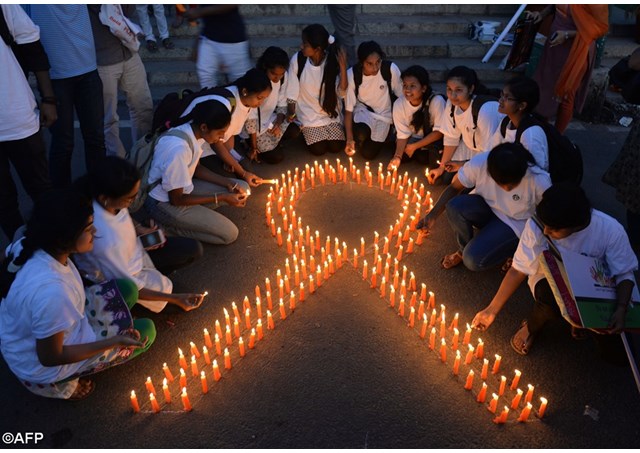
Caritas takes cancer care to India's remote areas

Asakiranam (beacon of hope), a Caritas India project launched in 2014 in Kerala creates awareness about cancer in remote areas with the help of 10.000 volunteers.
Under this project, patients and other people are encouraged to switch to organic farming techniques and shun fruits and vegetables produced with the help of chemical pesticides, which is considered by many to be a major cause of cancer in the state.
Under the project, in 2016 alone, over 1,500 awareness classes on the causes and symptoms of cancer were conducted and 235 cancer detection camps were organized. It helped contact over 246,000 families making them aware of the disease. They also provided care and support for families affected by cancer.
The high incidence of cancer cases in Kerala forced all 31 dioceses in the state to take up the project, said Father Frederick D'Souza, executive director of Caritas India.
"The uniqueness of the project is that for the first time a single program with the same model has been taken up by all dioceses. It is now self-financed by them," he told ucanews.com.
"Say yes to life, no to cancer" is the 2017 Lenten Campaign theme of Caritas India. The campaign contains a spectrum of activities including awareness camps, workshops, exhibitions, hair donation and volunteer meetings.
The success of the project in Kerala, prompted Caritas India to expand the project to other southern states such as Tamil Nadu, Andhra Pradesh and Karnataka, Father D'Souza said.
"It is in its initial stage in these states. The name of the project might be different but the model will be the same," Father D'Souza added.
In 2011 there were 452,000 deaths in India due to cancer. This number increased to 492,000 in 2014, the same year that around 2.8 million cancer cases were detected.
Asakiranam runs a cancer-care home, ambulance service, free accommodation and palliative services. Every year some 50,000 cancer cases are detected in Kerala, home of 35 million people. (UCAN)
| All the contents on this site are copyrighted ©. |


